
The Do's and Don'ts of RVing for Beginners
Recreational vehicles (RVs) have been a quintessential part of the American road trip for decades.
They offer a sense of freedom and adventure that few other types of travel can match. If you're new to the RV scene, the plethora of options and freedom to roam can be a little overwhelming.
This comprehensive guide to RVing for beginners, outliness the dos and don'ts that will help you have a smooth and enjoyable experience from the get-go. Read on.
Why RVing?
The allure of RVing lies in its ability to merge the comforts of home with the thrill of travel. With an RV, you can explore various destinations without the constraints of hotel reservations and fixed itineraries.
The road is at your beck and call, leading to spontaneous detours and unexpected discoveries. But before you hit the road, it's crucial to familiarize yourself with the dos and don'ts to ensure you're prepared for the adventure ahead and to avoid common pitfalls that can turn a dream trip into a stressful experience.
RVing Do's
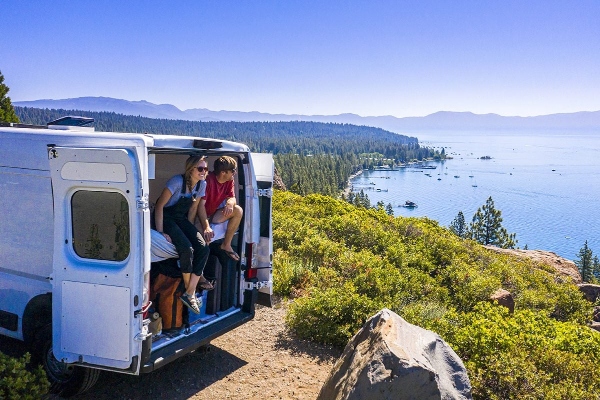
RVing or recreational vehicle camping is an exciting and adventurous way to travel and see the world. However, as a beginner, it's important to familiarize yourself with some important dos and don'ts to ensure a safe and enjoyable trip. Here are some of the do's.
Do Your Research
Before even considering your first RV trip, it's important to research the basics thoroughly. Understand the types of RVs available, from motorhomes and camper vans to travel trailers and pop-up campers. Each has its own set of advantages and drawbacks, such as size, drivability, and amenities.
Look into different RV parks and campgrounds where you plan to visit. Some may cater more to families, while others might offer more remote, off-the-grid experiences. Services like AllStays and Good Sam's Club can provide comprehensive listings and reviews of RV parks to help you make your selections.
It's also helpful to consult an expert especially if you're a woman to avoid any accidents. Make sure to read more about RVing women beforehand.
Do Plan and Budget
Creating a plan and budget for your RV trip is crucial for staying organized and avoiding overspending. Start with calculating the costs of renting or purchasing an RV. Then, consider additional expenses such as campground fees, fuel, food, and any activities you plan to do along the way.
Plan your route and identify any must-see attractions or stops, so you can ensure you have enough time to enjoy your trip without feeling rushed. Keep in mind that flexibility is key with RV travel, so it's wise to have a rough plan but remain open to changes.
Do a Test Drive
If you're renting an RV or have a new one, don't wait until the day of your trip to jump behind the wheel. Schedule a test drive to get comfortable with the vehicle's size and handling. Practice parking, turning, and backing up in an empty parking lot to build confidence.
For those new to driving larger vehicles, consider taking an RV driving course. Many organizations offer hands-on training that can be invaluable for safety and peace of mind on the road.
Do Pack Smart
Packing for an RV trip is a bit different than packing for a typical vacation. You'll have more space, but you'll also need to think about weight and balance in the RV. Lightweight, collapsible items and organizers can help make the most of your storage space.
Essential items to pack include bedding, towels, kitchen supplies, a first-aid kit, tools for any minor repairs, and emergency supplies. If you're not sure what to bring, many experienced RVers have packing lists available online to use as a guide.
Do Practice Campsite Etiquette
Once you've arrived at your campsite, be mindful of your neighbors. Keep noise to a minimum, especially at night when others might be trying to sleep. Follow any rules or guidelines set by the campsite, and always clean up after yourself, whether it's at your site or around the communal areas.
Campground etiquette also means respecting wildlife and the environment. Don't feed animals, always dispose of waste properly, and leave your site as you found it.
RVing Don'ts
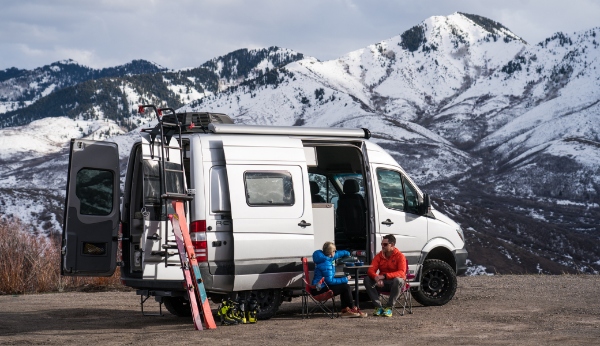
When embarking on an RVing journey for the first time, there are some key things that beginners should avoid to ensure a safe and enjoyable trip. Here are some of the don'ts.
Don't Overpack
While packing smart is important, overpacking can lead to unnecessarily heavy loads that affect your RV's gas mileage and overall safety. It's better to pack light and do laundry along the way or pack layers of clothing that can be mixed and matched.
Remember, most RVs have limited weight capacities, so it's wise to know your vehicle's specs and not exceed them. Staying within your weight limits ensures a smoother ride and easier handling.
Don't Rush
The appeal of RV travel is the ability to slow down and enjoy the journey. Don't try to cover too much ground in a single day. Plan to drive for a few hours and then take breaks to rest and explore.
Rushing can lead to driver fatigue and cause you to miss out on the little things that make RV travel special. Instead, slow down, take your time, and soak in the natural beauty and local charm that each stop offers.
Don't Ignore Safety Precautions
Safety should always be a top priority when RVing. Before you leave, check that all safety equipment-such as fire extinguishers, smoke detectors, and carbon monoxide alarms-is working properly.
When you're on the road, always wear your seatbelt, and make sure everyone else in the RV does the same. If you're traveling with children, ensure they are in appropriate car seats or seatbelts. And don't forget to secure all items inside the RV to prevent them from falling during travel.
Don't Expect WiFi Everywhere
One of the joys of RVing is disconnecting from the digital world and reconnecting with nature and loved ones. While some RV parks offer WiFi, it's not always reliable or available in more remote locations.
Plan for this by downloading maps and any reference materials you may need ahead of time. Consider investing in a mobile hotspot device if you need to stay connected for work or in emergencies. Otherwise, use the opportunity to enjoy the unplugged time.
Don't Forget to Have Fun
With all the planning and preparations, it's easy to forget the reason you're RVing in the first place-to have fun! Make the most of the experience by trying new activities, engaging with fellow campers, and taking in the sights.
Don't stress over little mishaps or unexpected changes to your plans. Half the adventure of RVing is the unknown, so approach each day with a sense of curiosity and a willingness to go with the flow.
Safety and Emergency Dos
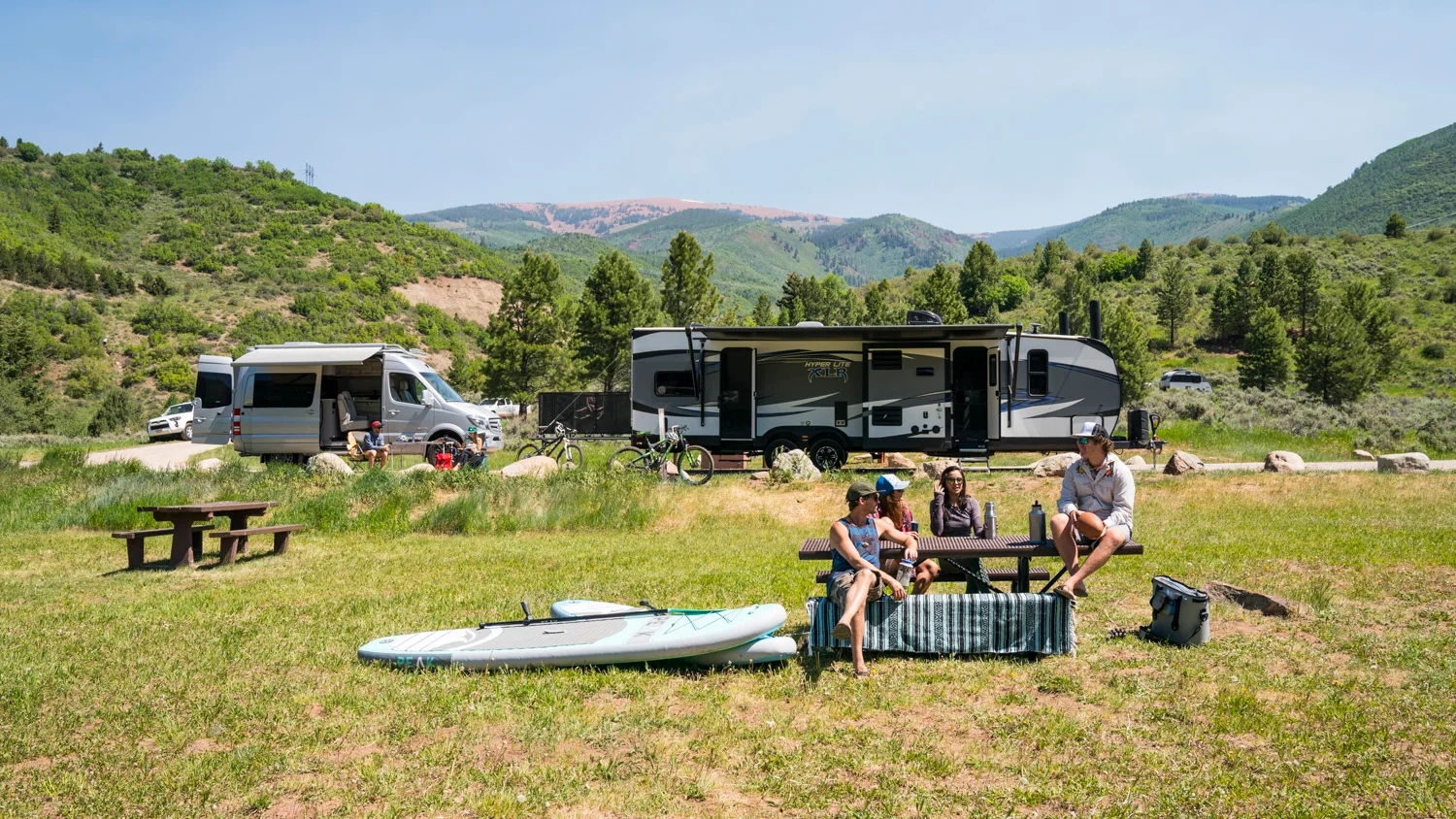
RVing, or recreational vehicle camping, is a fun and exciting way to explore the great outdoors. However, as a beginner, it's important to be aware of certain safety and emergency dos to ensure a safe and enjoyable experience.
Do Know Your RV
Spend time getting to know your RV inside and out before you hit the road. Understand how to operate the living quarters, the electrical and water systems, and any appliances included.
Familiarize yourself with the location and operation of the emergency shutoffs for gas, water, and electricity. Also, know where to locate your spare tire, tools, and the owner's manual in case you need to reference it during your trip.
Do Routinely Inspect and Maintain Your RV
Regular RV maintenance is essential to keeping your RV in good condition and avoiding any issues on the road. Check the exterior for damage, and inspect the roof and around windows for any potential leaks.
Inside, ensure all systems, such as plumbing and electrical, are working properly. Routinely empty the black and gray water tanks and keep them sanitized to prevent odors and bacteria buildup.
Do Carry Emergency Supplies
You never know what you might encounter on the open road, so it's important to be prepared for any eventuality. Some essential emergency supplies to carry include a first-aid kit, tools for roadside repairs, extra hoses and cords, and a portable weather radio.
Consider packing a generator or solar charger for power in case of an outage. A set of emergency flares and reflective triangles can also be invaluable if you're stranded or need to alert other drivers of your presence.
Environmental Don'ts
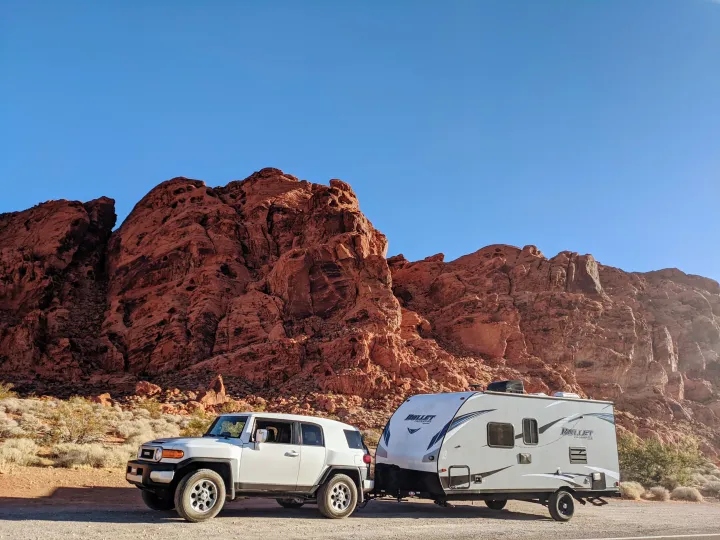
As a beginner to the world of RVing, it's important to educate yourself on the environmental don'ts to ensure you are being a responsible traveler. Here are some of the environmental don'ts.
Don't Leave a Trace
Always leave your campsite as you found it, or even cleaner if possible. Properly dispose of all waste, including gray water and black water. Use designated dump stations at campgrounds or RV parks.
Dispose of trash in appropriate bins, and consider separating recyclables. Never leave litter or personal items behind. The goal is to enjoy nature's beauty while ensuring it remains pristine for others to enjoy.
Don't Idle Your Engine
When you're parked at a campsite or resting, turn off the engine. Not only does idling waste fuel, but it also contributes to air pollution, especially in camping areas where the air is often more still.
Instead, use your RV's house batteries for power or, if necessary, consider a quiet, environmentally friendly generator that meets the noise and emission standards of the chosen location.
Pro Tips for a Great RVing Experience
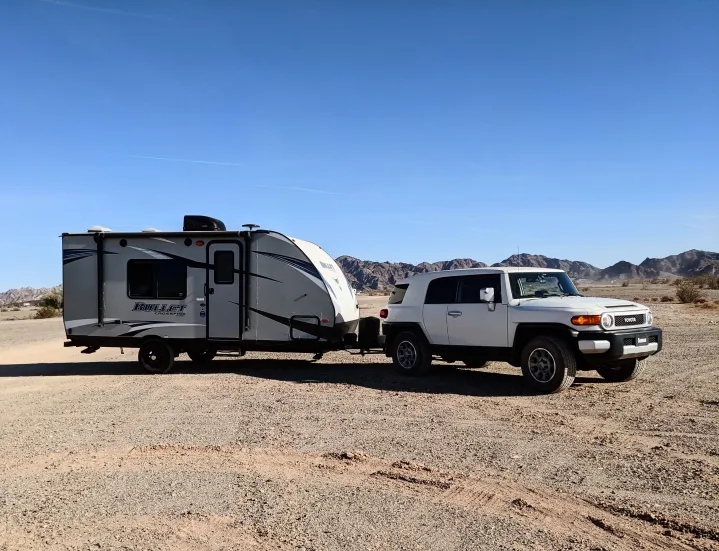
RVing, or traveling in a recreational vehicle (RV), is a great way to explore the world and create unforgettable memories. However, for beginners, it can be overwhelming and even daunting at times. To ensure a fantastic RVing experience, here are some essential tips.
Research Unique Stops Along Your Route
The best RV trips often include unique stops and side adventures. Research interesting landmarks, local events, or historical sites along your route. These detours can add depth and unforgettable experiences to your trip.
Join RVing Communities
There are many online and offline communities for RV enthusiasts. Joining these can provide you with valuable tips, support, and potentially new friends. Social media groups, forums, and RV clubs can be great places to connect and learn from experienced RVers.
Make a Plan, but Stay Flexible
Having a plan is important, but the joy of RV travel is also about flexibility. Be open to spontaneous changes in your itinerary. A friendly local might recommend a hidden gem that's worth a visit, or you may find a charming town along the way that's worth a stopover.
Learn to Disconnect and Reconnect
Use your RV trips as a way to disconnect from the hectic pace of everyday life. Enjoy the peaceful moments by a campfire or stargazing at night. And when it's time to reconnect, do so with the memories of a great adventure and an eagerness to plan the next one.
Appreciate the Journey, Not Just the Destination
One of the most rewarding aspects of RVing is the ability to appreciate the journey itself, not just the final destination. Take the time to pull over at scenic overlooks, enjoy leisurely lunches in local parks, and immerse yourself in the landscapes and cultures you pass through.
Prepare for All Weather Conditions
Weather can be unpredictable, and being on the road means you might encounter a variety of conditions. Equip your RV with supplies for extreme weather, including extra blankets for cold snaps, fans or portable air conditioners for heatwaves, and rain gear for every member of your party.
Stay informed about the weather forecasts for your destinations so you can adjust your plans if necessary. Adapting to the weather will ensure your comfort and safety, making your trip more enjoyable overall.
Use These Tips for RVing for Beginners Today
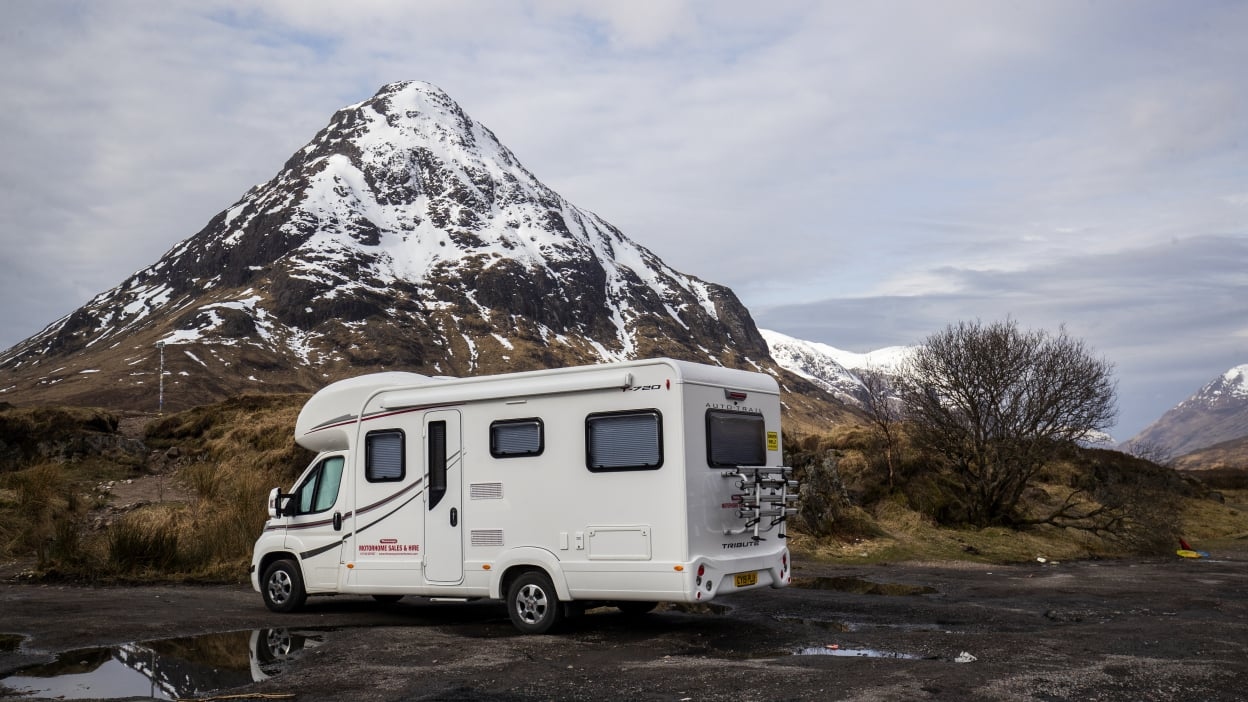
RVing for beginners can be both exhilarating and a bit nerve-wracking. By following these dos and don'ts, you'll be well on your way to mastering the art of the open road and ensuring that your first RV trip and all of those that follow is memorable for all the right reasons.
Remember, RVing is about the joy of adventure and the experience of seeing new places and meeting new people. Keep an open mind, prepare as much as you can, but also be ready to adapt and have the time of your life. Safe travels! If you want to read more articles, visit our blog.
Trending
-
1 Jocko Willink's Inspirational Life & Net Worth
Aaqil Ashraf -
2 How Art Shapes Culture and Reflects Human Experience
Luke Fitzpatrick -
3 Meet Felix Williams and Maria Arthuer: The Parents of World Class Winger Nico Williams
Felix Yim -
4 Kai Cenat's Dad and the Enduring Public Interest
Aaqil Ashraf -
5 London Tube Stations Closed as Workers Stage Strikes
Mihir Gadhvi





Comments